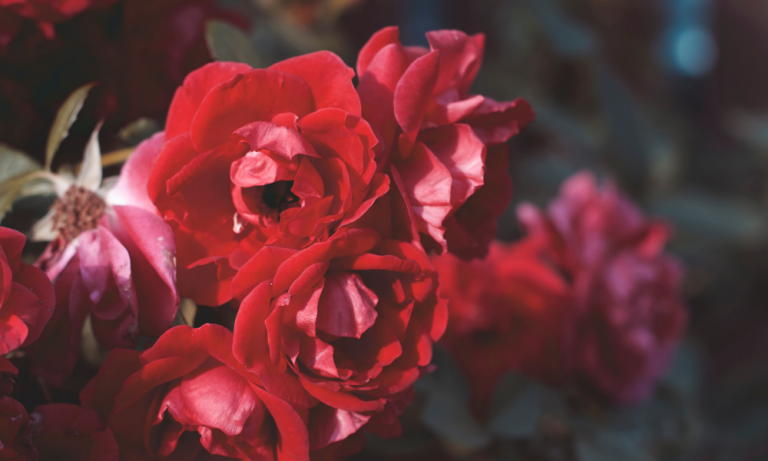ANOTHER DAY ON GOD’S GREEN EARTH
Calvin’s heart failed; then he drowned.
At the funeral, Marva avoided all speculation.
“I heard the twins were playing video games in the basement—that’s why they didn’t notice.”
“I heard Marva was at the grocery store, came home to her husband underwater in the bathtub, his heart cold.”
After the last guest said goodbye, Marva brought a bottle of Calvin’s whiskey onto the back porch to keep her company. Its sharp, oaky smell reminded her of Calvin, brought his face back to her from the depths of time as if they had been separated for more than just a few days. She never drank, or at least she hadn’t in many years, not since she and Calvin started dating. His odd brand of zealous religiosity forbade women alcohol, so she had given it up, although she had always enjoyed the taste and the buzzy feeling. Whiskey, in particular, had gotten her through the first few months after her mother’s death, and now it felt natural and right to be outside on the back porch, a cool glass in her hand, the twins inside watching old war movies and scavenging trays of food delivered by neighbors and Calvin’s parishioners.
The sky hung above the trees, a hazy kind of orange as if someone had draped a scarf over the sun. A heavy black crow landed on the powerline stretched across the yard. A squirrel raced past with something between its teeth. A rabbit inspected the rose bush by the southern fence.
Marva coughed, her eyes surprised by the bush’s appearance and her throat surprised by the tickle of alcohol. The rabbit tore through the tall, calf-tickling grass, frightened, but the rose bush didn’t move.
Marva touched the sweating tumbler of whiskey to her bottom lip. The rosebush isn’t there. She suddenly remembered the pickles she had bought for her husband’s lunch, for his sandwiches. He had requested a specific brand—as usual, the opposite of the brand that Marva liked the most. He is very particular when it comes to things like that. She had bought the pickles he requested, of course—they were in the downstairs refrigerator. Marva used to think having two refrigerators simply wasted energy, but after all the casseroles and fruit plates, the cakes and muffins, she realized that maybe people have two refrigerators purposefully for when someone dies.
She looked out again past the rosebush, and, sipping her whiskey, corrected the tense of her thought.
He was a very particular man.
***
The next morning, Marva replaced the whiskey with an equally strong cup of coffee she had procured the next town over, after leaving the twins to fend for themselves on their way to school again. She hadn’t had coffee in almost as long as she hadn’t had whiskey, for the same sinful reason.
When she returned home, she immediately cut through the house to the backyard. She wanted to see if her rosebush had survived the night. It had. And now, to its right bloomed three lilies—white, pink, and mango orange—the grass around them long and green. Marva sipped her paper cup of coffee carefully. If Calvin were here, he would be in charge of the situation, directing his congregation to pray steadfastly for whatever demons had taken over their backyard —or, perhaps, Marva’s imagination—and Marva would be sitting in the front pew nodding and wringing her hands and wanting salvation.
A butterfly danced over the group of flowers, vibrating, flickering in the air. It touched down, for an instant, then arched over the fence, alighting in Carol Delaney’s flower bed. Carol kept her yard neat and trimmed. Daffodils and tulips bordered the fence. Square bushes sat below the windows. As Marva took another sip of coffee, she heard the screen door shudder, and Carol came out on her back porch, equipped with a trowel, gloves, and knee pillow. Her hair was tied tightly at the nape of her neck, hanging dark and straight down her back. She looked at Marva, over her right shoulder, eyes slightly lowered to compensate for the way their street wound down a gentle hill. Suddenly, the cup in Marva’s hand felt unbearably, dangerously hot. She waved at Carol with her free hand.
“Back at it!” Carol replied, hefting her gardening tools on her hip as she made her way down the deck stairs.
“It looks beautiful as always,” Marva offered. “What work could you possibly need to do?”
“One must always be hypervigilant for pests and weeds this time of year. Even my best pesticides have vulnerabilities.”
Marva nodded, rotating the paper cup more tightly into her side.
“And what’s this?” Carol’s lips were pursed, confused and skeptical, and pointed in the direction of the rose bush.
“A gift,” she said. Did I say that too quickly? “One of Calvin’s cousins who couldn’t make it to the funeral. ‘A whole bush would last longer than a bouquet,’ I think her card said.”
“I’m impressed with how you’ve planted it, Marva,” Carol said, with an easy-to-detect air of condescension. Marva had never enjoyed tending the yard and kept it simple, plain, and grassy.
“Watched you for years, haven’t I?”
Carol laughed. “I suppose that’s true! Glad to have been of service.”
When Carol bent down to set up her tools, Marva rose quickly and turned towards her own door. “Time to get this house in order, Carol!”
“Oh, hon—of course! But give yourself some grace and rest. That’s what Calvin would have wanted.”
Once inside, Marva resolved that she would resume the life Calvin would have wanted for her. She stood over the sink with her coffee, continuing to promise to pour out the remainder of the cup after one final sip, until both the promise and the cup were empty.
***
That night, Marva had a dream.
Her mother knelt in the backyard, covered in soil, sweaty, red-cheeked. She dug and laughed, whispering conspiratorially to the rogue rosebush.
“Come down here and help me with this garden!”
Marva stepped off the porch stairs and found herself barefoot in a sea of dewy, candy-sweet-smelling grass. Every step she took sprouted flowers, and soon a trail of them wound through the grass, attracting honey bees and hummingbirds. The fragrance enveloped her, warm and comforting. She knelt beside her mother in the dirt.
“This is for you, Marva,” her mother said, gesturing. “This is what you can do if you let yourself believe.”
“But you died, Mom,” Marva said, suddenly feeling like an uncertain, surly teenager again.
“That doesn’t matter,” her mother replied. “That doesn’t matter at all.” She gestured again. “Come, come.”
Marva leaned in, now closer to the rosebush in her dream than she had been in waking life. She felt she belonged here, in the soil, making something grow. She had never felt that way about the twins; they were Calvin’s project, like everything else had been in their lives. They weren’t nurtured but trained, not wild roses but bonsai trees, twisted to one perspective of perfection in which only one direction was acceptable.
“Remember, Marva,” her mother continued, “When you were just a little girl, and you didn’t mind getting dirty? You didn’t mind showing up with a smudge on your face or on your knee. You were brave and kind and the only child like you in the whole world.”
“It was so hard when you died, Mom. Like the floor dropped out beneath me and I was terrified to take a step for fear of falling down deeper than I could fathom. The weight of the depth pulled on my bones. I could feel its gravity in the pit of my stomach with every breath.”
“You could be like that again, Marva, like that child, that little girl I loved too much to hold onto. That’s the only way I know you.”
“Things are so different now. I’m not that person. And now Calvin is dead and it doesn’t feel the same. It’s not that I’m back being who I was before I married him, but I’m not the same as I was when he was alive. And the bottom dropped out but it doesn’t feel so deep; it feels like if I just waded out a little bit, I could find solid ground, but it’s not a guarantee. It’s a leap of faith I have to take and I haven’t had faith in a long, long time.”
“The world needs you to leap, Marva. The world needs you to put your hands on it and listen and learn and make and build and grow. You can’t let it die,” her mother said, pointing with her eyebrows to the rosebush. It shuddered as the dream grew blurry around the edges. “It’s up to you, of course. It always has been, Marva. Do you care for yourself, do you nurture yourself? Or do you stay here, in this inauthentic certainty, and just waiting and waiting as the world creeps past you?”
***
The next morning, the rosebush didn’t look well. Even from a distance, and in the foggy first moments of awakening, Marva could almost feel the crunch of its dry leaves between her fingers. For whatever reason, the rosebush and its counterparts had been placed in Marva’s care.
The garage was full of projects and dreams that Calvin had left behind. Metal rucksacks hung on rusted hooks. An entire workshop left to gather dust: expensive tool cases full of bottle caps and nail clippers and cigar butts, specialized drill bits kicked into cracks and drains. Beneath a tarp, Marva found what she was looking for.
They will need watering, at the very least. Marva didn’t know if this was her thought or her mother’s voice in her head. It’s a place to start, anyway, she responded.
Marva filled the found watering can from the garden hose, lugged it to the back of the yard and the rosebush. The water carved a path in the dry dirt, rivulets of liquid running to the trunk of the rosebush, curling beside Marva’s shoes, the cool fluidity like dipping your toes into a summer creek without any fear of mud or fish.
Marva dropped the empty watering can to the ground, slipped her shoes off, her socks. She squinted at her toenails and dug them into the fresh mud. Wriggled. She imagined worms welcoming her toes, making space.
The sun stretched over the treeline. Marva used to dread the mornings, the sunrise. Another day on God’s green earth, and we have so much to be thankful for, Calvin would say. Amen, Marva would respond. But she didn’t really want to say amen; she really wanted to say, You can take your morning and put it you know where, and I’m going back to sleep. She used to never be able to get enough sleep.
Another day on God’s green earth, she repeated. Her feet were dirty and she didn’t care. She reached her neck up as high as she could lift it into the sun.
***
Robin Lanehurst identifies as white, queer, neurodiverse, and is currently writing from Houston, Texas where they live with their wife, son and a small menagerie of pets.

